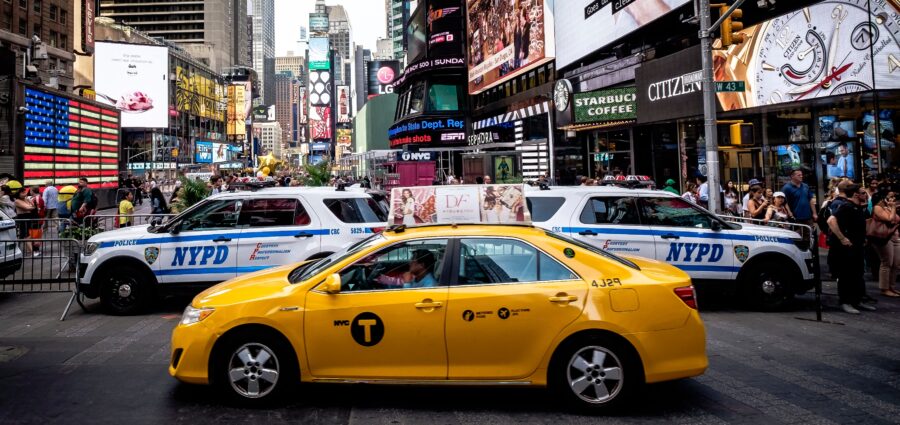New York City Taxi and Limousine Commission (TLC) today published a report offering crucial insight on the effects of CoViD-19 on the City’s taxi and for-hire vehicle (FHV) sectors. As New York City’s economy paused to flatten the CoViD-19 curve, taxi and for-hire passenger demand dropped by 84% in comparison to pre-pandemic levels, according to the report, available here.
The report, “CoViD-19 Impact on the NYC For-Hire Industry,” covers the period from March 15 – June 30, 2020 and found that decreases in passenger demand tracked a decline in citywide economic activity, including business travel, tourism, entertainment, and nightlife. The report also documents the essential work of thousands of TLC-licensed drivers assisting the City to reach vulnerable New Yorkers by participating in the Get Food NYC Program. TLC drivers have delivered over 50 million meals to New Yorkers in need.
“This report details the realities of the for-hire car industry during the pandemic. I see it as both a testament to the shared mission of TLC and our licensed drivers to support the City during the pandemic, but also as a starting point for many of the changes that will make our industry safer, more accountable and stable for operators, drivers and passengers alike,” said TLC Commissioner Aloysee Heredia Jarmoszuk. “Fully understanding the impact of the pandemic will help us make the industry stronger and better able to meet any shifts in passenger demand as the city continues its reopening.”
Some of the report’s findings:
- In the beginning of April, as New Yorkers stayed home, trips in all TLC-licensed vehicles dropped 84% compared to the same time last year. In April 2020, 28,893 TLC drivers were on the road, compared with 122,076 TLC Drivers in April 2019.
- Since April, more drivers have returned to the road, trips gradually increased by 78% and driver earnings are up over 81%.
- During this March through April period, trips to parts of the city with hospitals increased as a percentage of all pick-ups, as trips to and from airports decreased.
- TLC separately licenses vehicles and drivers to maximize accountability.
- TLC Vehicle owners have continued to renew their vehicle licenses at historic rates since March, while fewer drivers renewed their TLC Driver License.
Since March, over 20,000 TLC-licensed drivers registered to participate in the Get Food NYC Program, which has distributed over 100 million meals since March. TLC-licensed drivers have so far earned $29.5 million, delivering 53 million meals across all five boroughs. TLC has made delivery safer for drivers by providing almost 200,000 items of Personal Protective Equipment, including free masks, gloves and hand sanitizer.
With drivers and owners facing historic challenges due to the pandemic, the
TLC accelerated the launch of a virtual Driver Resource Center, opening in May. The Center offers a range of free financial counseling and legal assistance for TLC drivers, as well as connecting them with government benefits and health and wellness resources. Over 500 licensees have already been served by the Driver Resource Center.
In addition to creating earning opportunities for drivers, TLC regularly provides drivers with information on resources, such as free or low-cost health insurance, telemedicine, and other work opportunities through its website and via email. Drivers who stayed home to help the City flatten the curve received vital benefits from the state and federal governments, as independent contractors have been eligible for unemployment insurance for the first time.
About TLC
Created in 1971, the TLC licenses and regulates taxicabs, for-hire vehicles, commuter vans, and paratransit vehicles. Its board consists of nine members, including eight unsalaried Commissioners. The Commissioner/Chair presides over regular public commission meetings and heads the agency, which has a staff of over 600 employees. To drive professionally in New York City, licensees undergo a rigorous background check, must have a safe driving record, and complete 24 hours of driver education. TLC-licensed vehicles undergo regular safety and emission inspections at the Agency’s Inspection Facility. Current Commissioner/Chair, Aloysee Heredia Jarmoszuk, was appointed in February 2020.








